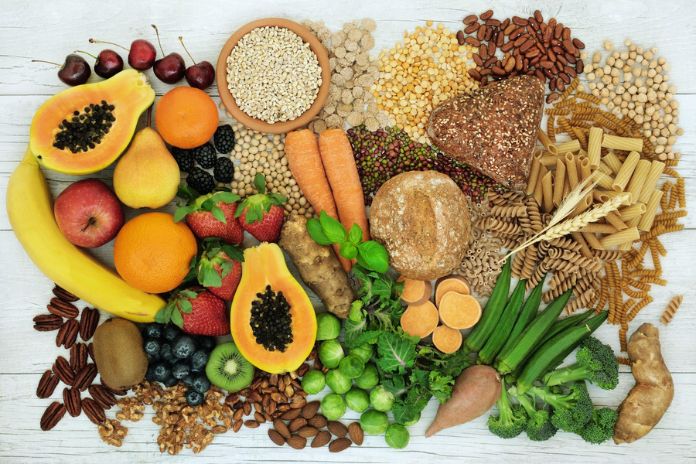Fiber in the diet play an essential role in proper body functioning, consequently delivering numerous health benefits.
They are a tangle of plant cells so resistant that the human organism cannot digest or absorb them, only partially or wholly ferment them in the large intestine. That is a part of the vegetable that is not absorbed and passes straight through the intestine as a tool for digestion.
Fibers in the diet do not provide calories and reduce the absorption of cholesterol, fats (learn more about dietary fats in our blog) and sugars, in addition to making you feel complete for a long time. Since they remain in the stomach along with the other nutrients for longer, they delay the perception of hunger and the need to consume more calories.
Fiber usually is present in low-calorie foods such as fruits and vegetables. They also can regulate intestinal transit. However, it is necessary to ingest water in large quantities for this to happen positively.
What Is And How Does Fiber Behaves In The Human Body
When we are digesting food, the organism extracts the nutrients necessary for its functioning, and the “leftovers” are dietary fiber, which can be soluble and insoluble.
Soluble fiber is transported by water in our digestive tract, forming a gel-like mucus that helps the intestines to absorb nutrients efficiently. Cereals like oat bran, chia, quinoa and fruits like blackberries, strawberries and blueberries have a lot of soluble fiber.
Insoluble fiber, on the other hand, increases the faecal bulk, reinforcing the friction with the walls of the intestine and encouraging its faster passage. Insoluble fiber can be found in leafy green vegetables, grains, tubers and roots.
Dietary Fiber And Its Health Benefits
- Cholesterol reduction: Soluble fiber can reduce LDL or harmful cholesterol levels; it binds to cholesterol, driving it out of the body;
- Delayed Sugar Absorption: Sufficient amounts of fiber cause sugar to enter the bloodstream more slowly, decreasing insulin demand.
- Improved Digestive Health: A high fiber diet helps the digestive tract work more efficiently. This means that your colon stays healthy, which enables you to avoid conditions like diverticulitis and irritable bowel syndrome.
- Helps in weight control: foods rich in fiber induce prolonged chewing and therefore can bring you satiety more quickly.
How Much Fiber Should You Eat Every Day?000
The recommended daily fiber intake is approximately 21 to 25 g for women and 30 to 38 g for men, depending on age, but most do not consume enough fiber daily.
After starting fiber in the diet, it is ideal for analyzing your body and understanding how it behaves with increased or reduced consumption.
You can start with more significant portions of veg0etables, legumes, seeds and fruits. However, each organism works in a way, so it is highly recommended to look for a nutritionist to develop the most appropriate diet for your biotype, with specific foods for your needs and goals.
It is common to think that it could take a long time for an increase in the amount of fiber in your diet to have an impact. Still, studies have shown that this change has caused drops in the levels of inflammation in the colon of people in a supplemented (high fiber diet) group. In just two weeks.
As you can see, ingesting fires goes far beyond keeping in shape; they are essential for the functioning of our entire body. Poor digestion of food can be solved with threads, and the lack of them can cause problems in the body and mind!
To take advantage of all the benefits that fiber in the diet can guarantee health, diversify your diet daily and practice regular physical activity. To learn more about nutrition, health and well-being, continue on the blog; it is full of exciting information!
ALSO READ: HEALTHY DIET TO LOSE WEIGHT: HOW TO DO IT SAFELY?

